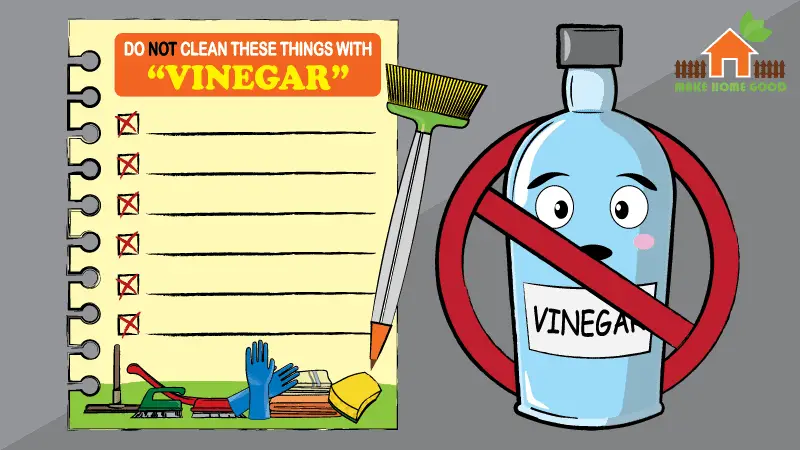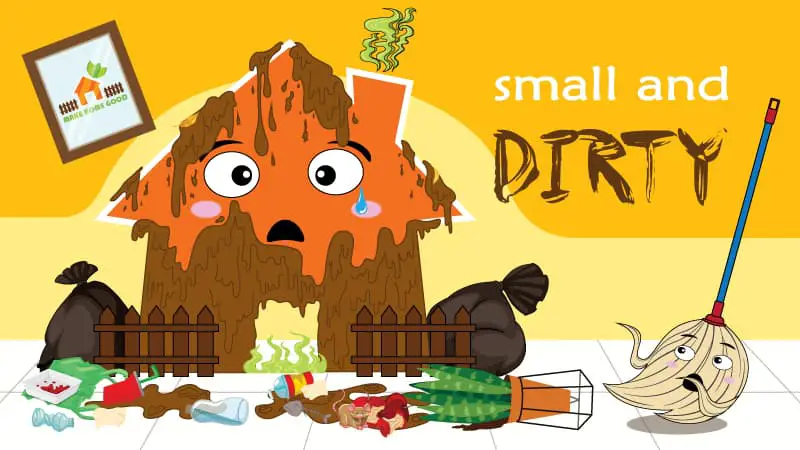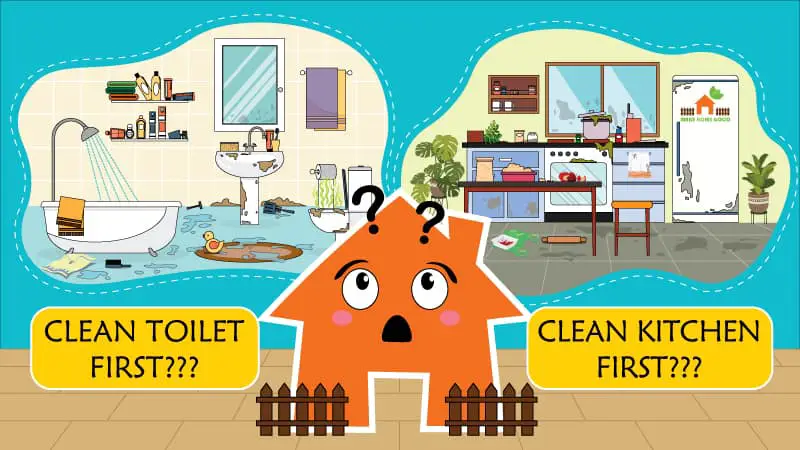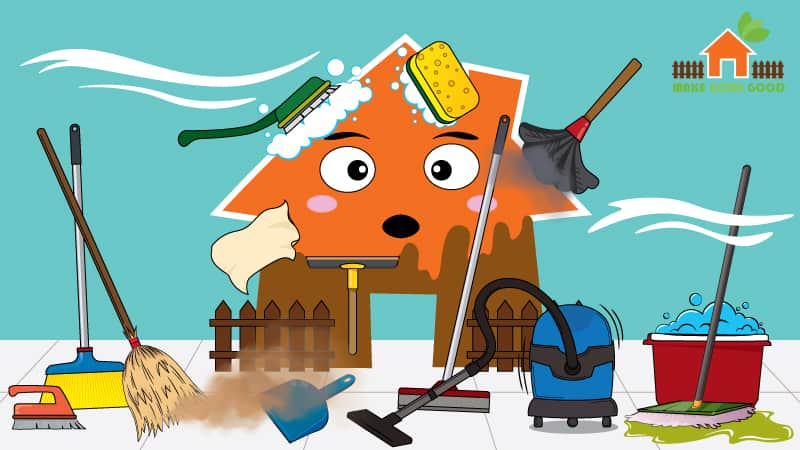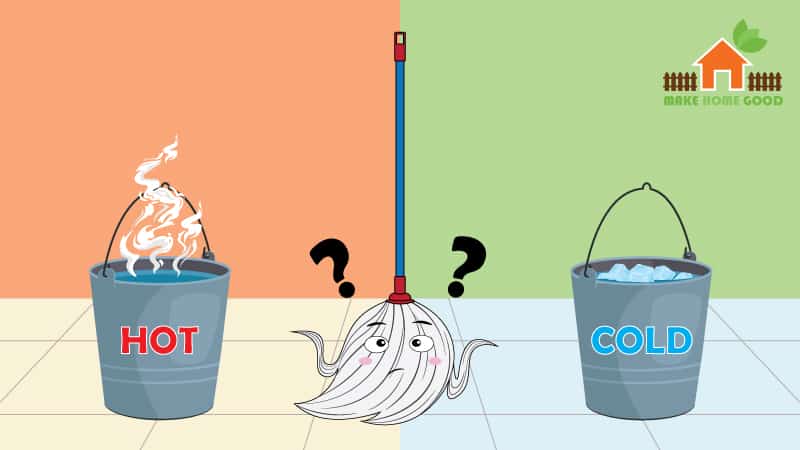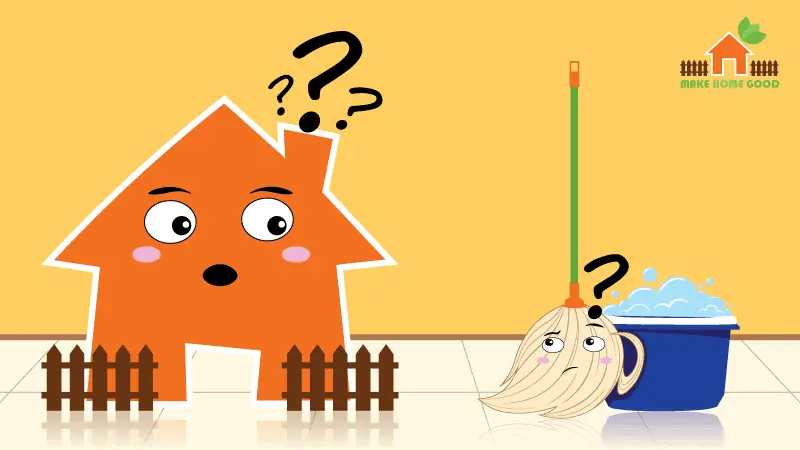Who doesn’t like cleaning with vinegar? I enjoy the chemical reaction that occurs when vinegar cleans dirt, grime, etc.:)
Nowadays, cleaning with vinegar is very popular because it is readily available and appears to be very effective for many household cleaning tasks.
But did you know that vinegar should not be used to clean all your things at home?
In this article, we will discuss what not to clean with vinegar. 🙂
Table of contents
What not to clean with vinegar?
I’ve seen so many videos (even older ones) promoting vinegar as an all-purpose cleaner that can be used in different areas of the home.
There are some inconsistencies between various articles and videos, so I consulted with some experts to learn more about what can and cannot be cleaned with vinegar.
The answer is, it depends on the material. We all agree that vinegar is an acid, and you must be aware of the effects of acids on various materials. There is an acid corrosion that vinegar can cause with your items.
This can be accomplished by combining water and acid, which is your vinegar; however, not all materials are affected but basically corrosion means degradation of metals, so I’ve listed some of the most commonly cleaned household items below.
Here are the things you should not clean or use with vinegar:
Chrome fixtures
Chrome is a very durable material, but it can be damaged by cleaning products. Vinegar is a volatile organic compound and can damage chrome surfaces. It also causes corrosion of the metal. To clean chrome fixtures with vinegar, you should use a cleaner that doesn’t contain any volatile organic compounds.
Descaling your clothing iron
Vinegar is a common household cleaner, but it’s not the best choice for cleaning your ironing cloth. Vinegar contains acetic acid, which can damage the fabric and make it difficult to clean. Instead of vinegar, try using an acid-free cleaner like washing-up liquid or water and a mild detergent.
Marble countertops
Cleaning marble countertops with vinegar is a common mistake. Vinegar is a strong cleaner and can damage the marble’s surface. Additionally, vinegar can cause staining and discoloration if it gets on the marble. If you want to clean your marble countertop, use a mild soap and water solution or an abrasive cleaner designed for marble.
Granite countertops
Granite is a very hard and scratch-resistant surface, but it can be damaged by cleaning products that are acidic or alkaline. Acetic acid, the main component in vinegar, is an acid and will damage granite. Vinegar also contains minerals such as potassium and calcium which can etch the surface of granite. Finally, vinegar is a harsh detergent that can damage the wood surfaces it comes into contact with.
Limestone countertops
Cleaning limestone countertops with vinegar is a mistake. Vinegar is a strong acid and can damage the surface of the countertop. It can also cause staining and discoloration. Instead, use a mild detergent or cleaner that is specifically designed for limestone surfaces.
Dishwasher cleaning
Dishwashers are often touted as a quick and easy way to clean up dirty dishes, but many people mistakenly believe that vinegar can be safely used to clean the machine. In reality, vinegar can damage dishwasher components and is not recommended for use in this type of cleaning. Instead, opt for a mild detergent or sponge cleaner designed specifically for dishwashers.
Smartphone screens
Vinegar is a common cleaning agent for household surfaces, but it is not recommended to clean smartphone screens with it. Vinegar can damage the plastic screen of a smartphone and cause problems if it is applied too often. In addition, vinegar can also damage other electronic equipment if left on it.
Smart tv screens
One of the most common cleaning mistakes people make is using vinegar to clean their smart TVs. Vinegar is a great cleaner for many things, but it’s not meant to be used on screens. Not only will vinegar damage the screen, it also leaves a strong vinegar smell that can be difficult to get rid of. Instead of using vinegar, try using a cleaner specifically designed for TVs and electronics.
Computer CPU
One of the most common cleaning mistakes people make is cleaning with vinegar on their computer’s CPU. Vinegar is a strong acid and can damage the delicate circuitry on your CPU. Not only is this a risky move, it also won’t do much to clean your computer. In fact, vinegar can actually make your computer slower by destroying the protective coating on the CPU’s integrated circuits. So if you’re looking for an effective way to clean your PC, keep away from vinegar and opt for a more reliable cleaner like a soft cloth or duster.
Hardwood floors
Cleaning products like vinegar can be dangerous for your hardwood floors. Vinegar is a harsh chemical that can damage the wood, leaving it susceptible to staining and water damage. In addition, vinegar is also known to cause some types of mold and mildew growth. If you need to clean your hardwood floors, be sure to use a safe cleaner like a cleaning product formulated for wood surfaces.
Stone tiled floors
One of the most popular cleaning solutions for stone tile floors is vinegar. The vinegar solution is effective at removing dirt, dust, and grease. However, this solution can also damage the stone tiles. Vinegar can cause staining and dulling of the finish on the tiles. Additionally, it can cause damage to the mortar between the stones. For these reasons, it is not recommended to clean stone tile floors with vinegar.
Stainless steel knives
Stainless steel knives are often used for cutting food and are difficult to clean. Vinegar is a strong cleaning agent, but it can also damage the metal. Instead, use a mild detergent and water to clean stainless steel knives.
Stainless steel electric fan
Vinegar is a very common cleaning agent and can be used to clean many surfaces, including electric fans. However, vinegar is not the best choice for cleaning a stainless steel electric fan because it can damage the fan’s motor. Instead of using vinegar, use a cleaner that is specifically designed to clean electric fans.
Stove or Cooktop
Vinegar is a great cleaner for many surfaces, but it’s not the best choice for cleaning stovetops or cooktops. Vinegar can be damaging to the surface it’s used on and can also cause food residue to build up, which can make cleaning even more difficult. Instead of vinegar, use a cleaner designed specifically for these surfaces.
Washing Machine
Vinegar is a common household cleaner and many people use it to clean their washing machines. While vinegar is effective at breaking down dirt and grime, it can also damage your washing machine’s interior. Vinegar is harsh and acidic, which can damage your machine’s metal parts and rubber gasket. Additionally, vinegar leaves a sour smell in your machine that can be difficult to remove. If you do decide to clean your washing machine with vinegar, be sure to follow the manufacturer’s instructions carefully.

